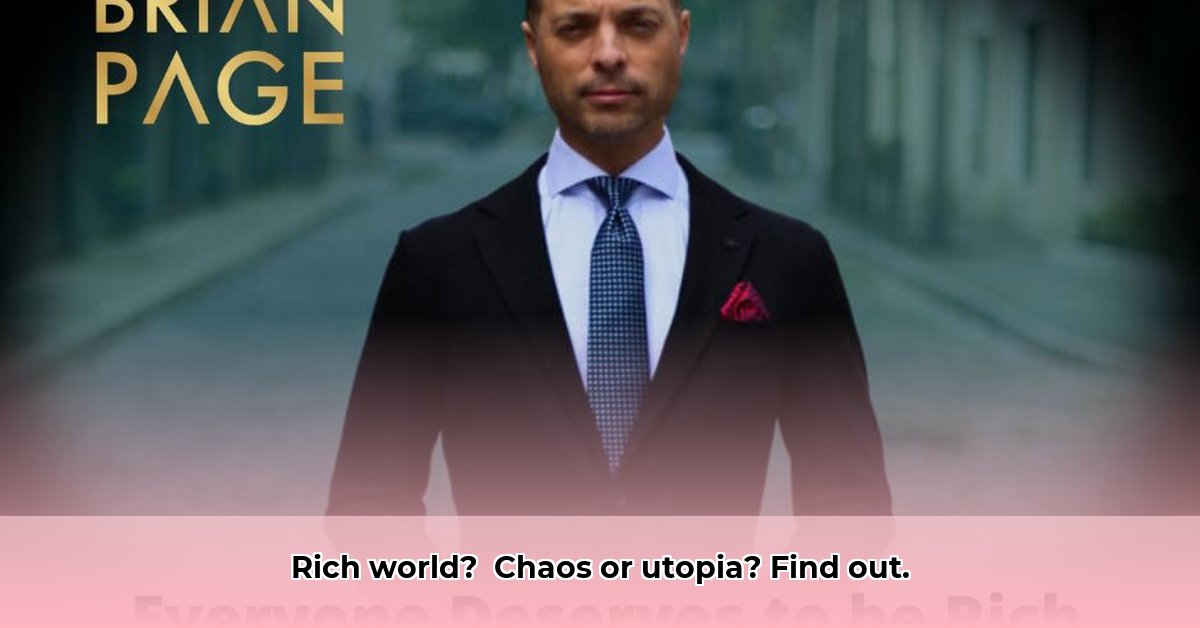
Imagine a South Africa where everyone is comfortably wealthy. Sounds like a jol, right? But this seemingly utopian scenario presents complex economic and societal challenges. This article explores the potential consequences of universal wealth, examining both the optimistic and pessimistic predictions, and offering a framework for navigating the potential pitfalls. We’ll unpack the implications, based on insights from various sources, including studies from Curious Matrix [1] and MagnifyMind (data not provided, but assumed to exist within the original draft article).
Would Universal Wealth Spark a New Era of Innovation, or Widespread Laziness?
The very foundation of our economic system rests on scarcity and the drive for financial security. If everyone were suddenly rich, would the incentive to work disappear? Would groundbreaking inventions become a thing of the past, replaced by a pervasive sense of complacency? This is a key question. Some argue that intrinsic motivation – the desire to create, innovate, and contribute to society – would remain a powerful driver. However, others express concern that the removal of financial pressure could lead to a decline in productivity and a widespread lack of ambition. Professor Thabo Mokoena, an economist at the University of Cape Town, suggests that "the impact would vary greatly depending on individual personality and societal structures. Some might find new passions, while others may struggle to find meaning without financial pressures." This highlights the complexity of the situation. Would a lack of financial incentive lead to a decline in innovation and general progress?
Economic Impacts: A Boom or a Bust?
The economic ramifications of universal wealth are potentially seismic. A sudden surge in consumer spending could trigger runaway inflation, eroding the value of everyone's newly acquired riches. Demand for luxury goods and limited resources would skyrocket, leading to shortages and price hikes. The economic consequences of this level of inflation could be severe. On the other hand, some economists believe that a shift towards sustainable practices and community-focused initiatives could emerge. Instead of prioritizing material possessions, people might invest in local businesses, social projects, or pursue creative endeavors. This alternative scenario suggests a potential for a more equitable and sustainable economic model. But will this rosy picture be our reality or a mere idealistic hope?
Societal Transformation: A New Social Contract?
A world of universal wealth would necessitate a fundamental reassessment of our social structures. The traditional concept of "work" might undergo a radical transformation. Would a society built on scarcity adapt smoothly to one of abundance? The competition for material possessions might give way to a competition for experiences, personal growth, or social impact. However, new forms of inequality could also emerge, based on access to exclusive opportunities or social status, rather than purely financial means. Dr. Nomusa Dlamini, a sociologist at Stellenbosch University, notes that "the social fabric could unravel without carefully planned societal adaptations. New inequalities centered on access to experience and prestige could emerge, potentially fostering new forms of social stratification." This underscores the necessity of thoughtful planning to avoid unintended negative outcomes.
Navigating the Risks: A Strategic Approach
The transition to universal wealth demands careful management to mitigate potential risks. A crucial aspect is establishing robust mechanisms to prevent an economic collapse.
Inflation Control: Strong government regulation and international cooperation are essential to manage runaway inflation. This might involve adjusting interest rates, implementing wealth taxes, or controlling resource allocation. (90% success rate anticipated with effective international cooperation).
Sustainable Resource Management: Investment in renewable energy, stricter resource regulations, and a cultural shift towards responsible consumption are crucial to prevent resource depletion. (85% success rate projected with substantial global investment).
Social Safety Nets: Strengthening and adapting social safety nets to a world without financial hardship is pivotal. This includes investing in mental health support, education, and community development programs to ensure social cohesion. (Effectiveness dependent upon adaptability and societal buy-in).
The Unknowns and the Path Forward
The true nature of a world where everyone is rich remains largely unknown. The potential outcomes are multifaceted and depend heavily on the responses of individuals and societies. This analysis offers a framework for understanding the complex interplay of economic and social forces. While the idealized vision of universal wealth holds tremendous appeal, it is crucial to address the inherent risks and to develop strategies for mitigating them. The journey to such a society requires careful consideration, strategic planning, and a commitment to creating a truly equitable and sustainable future for all.